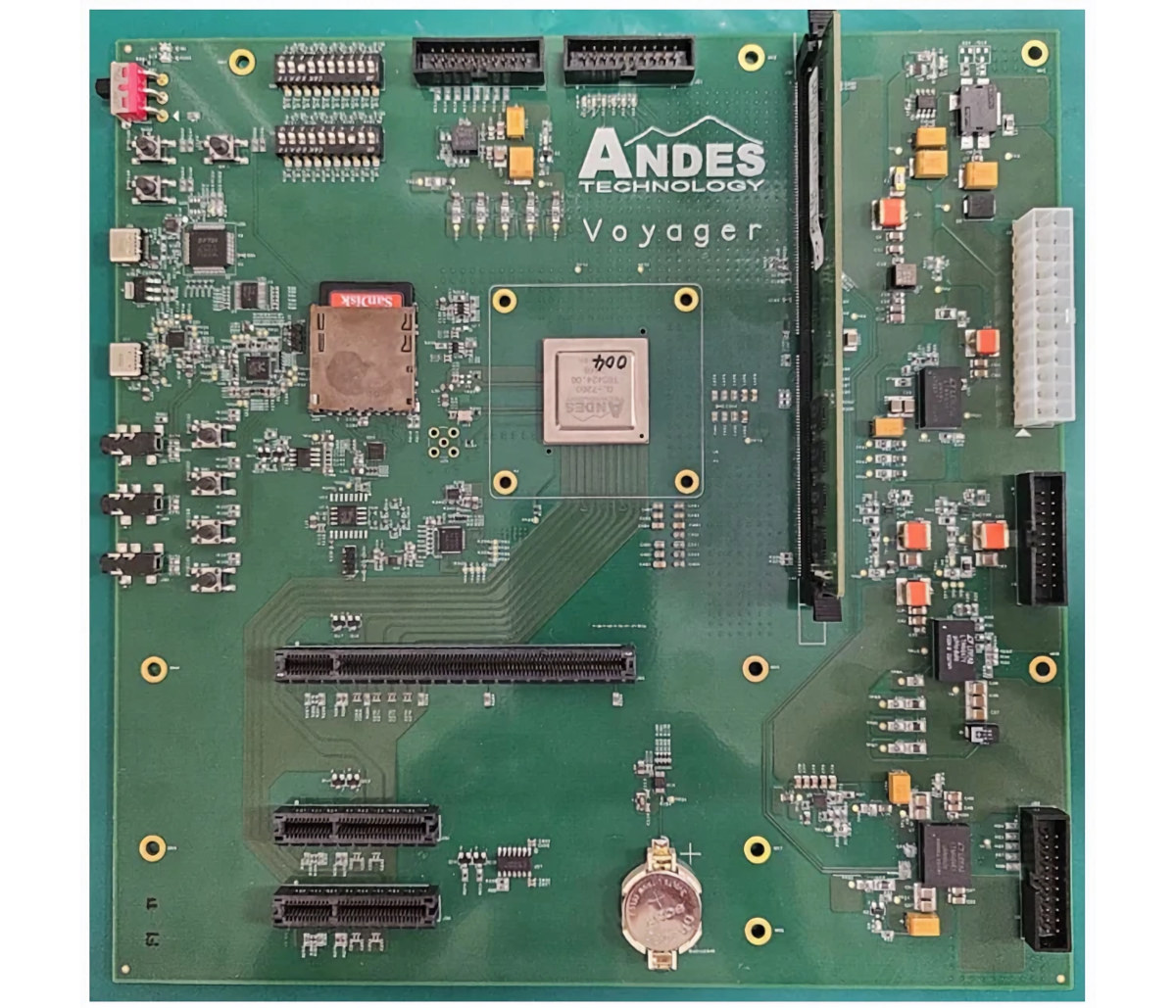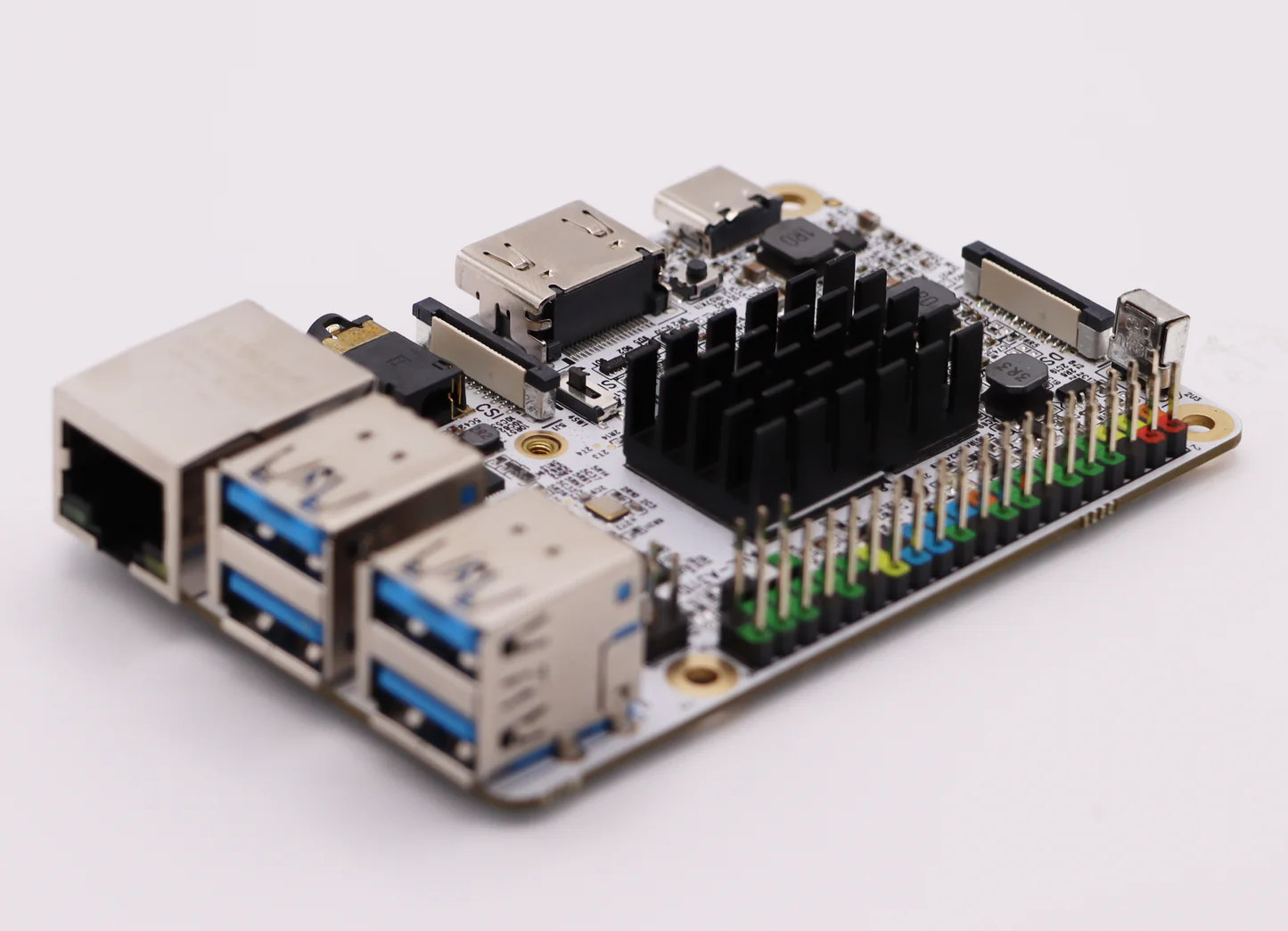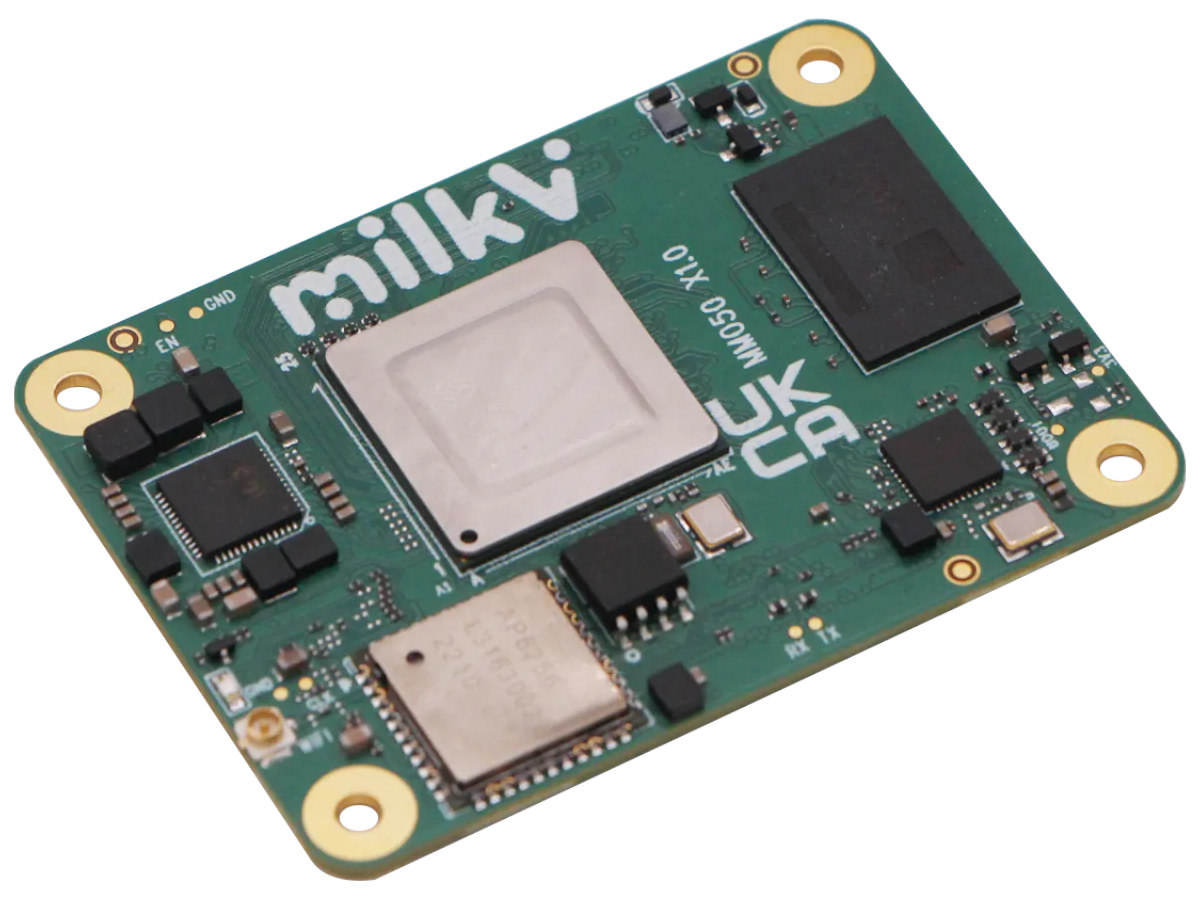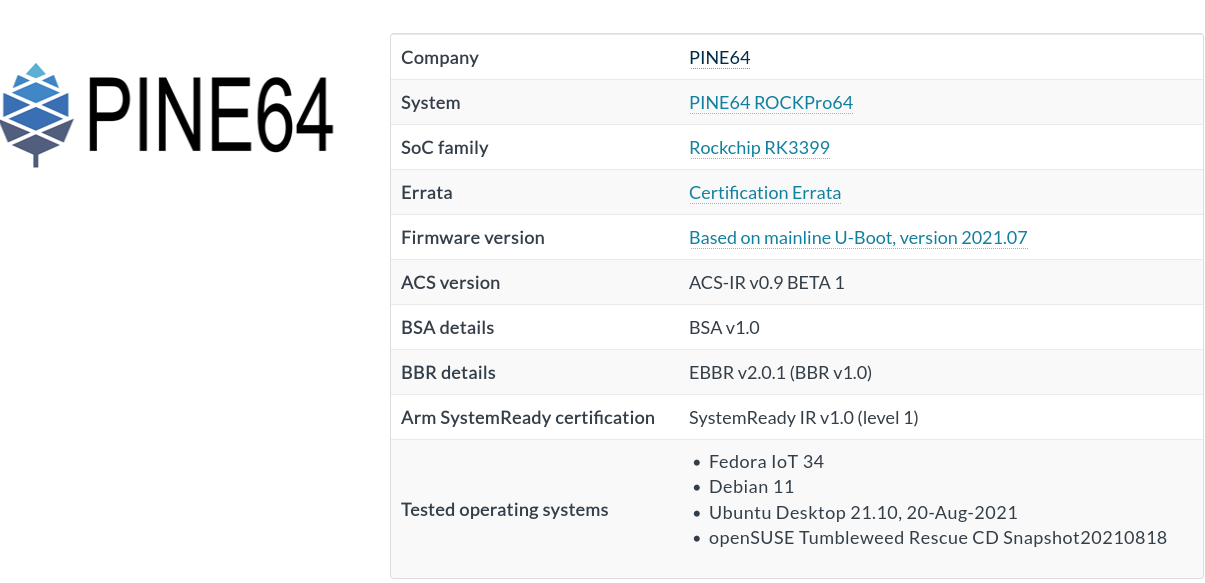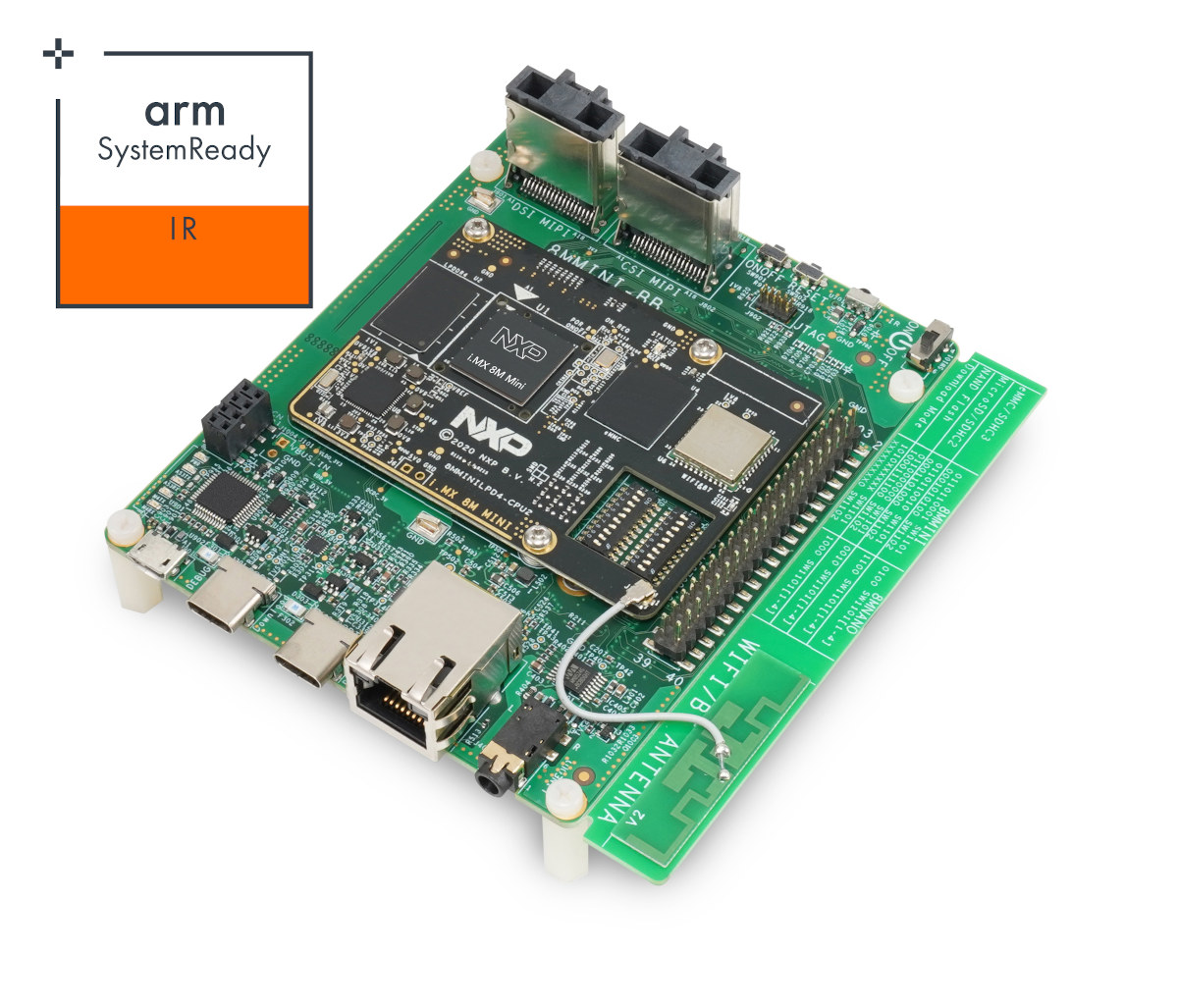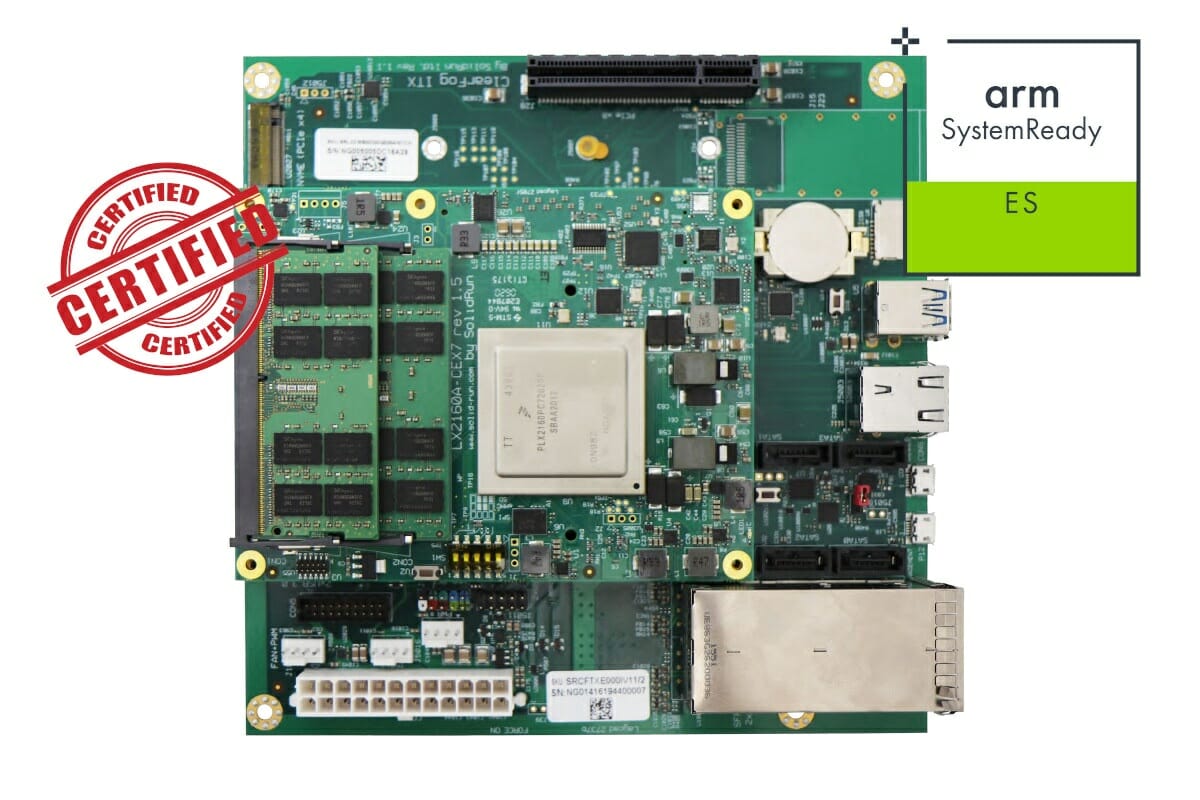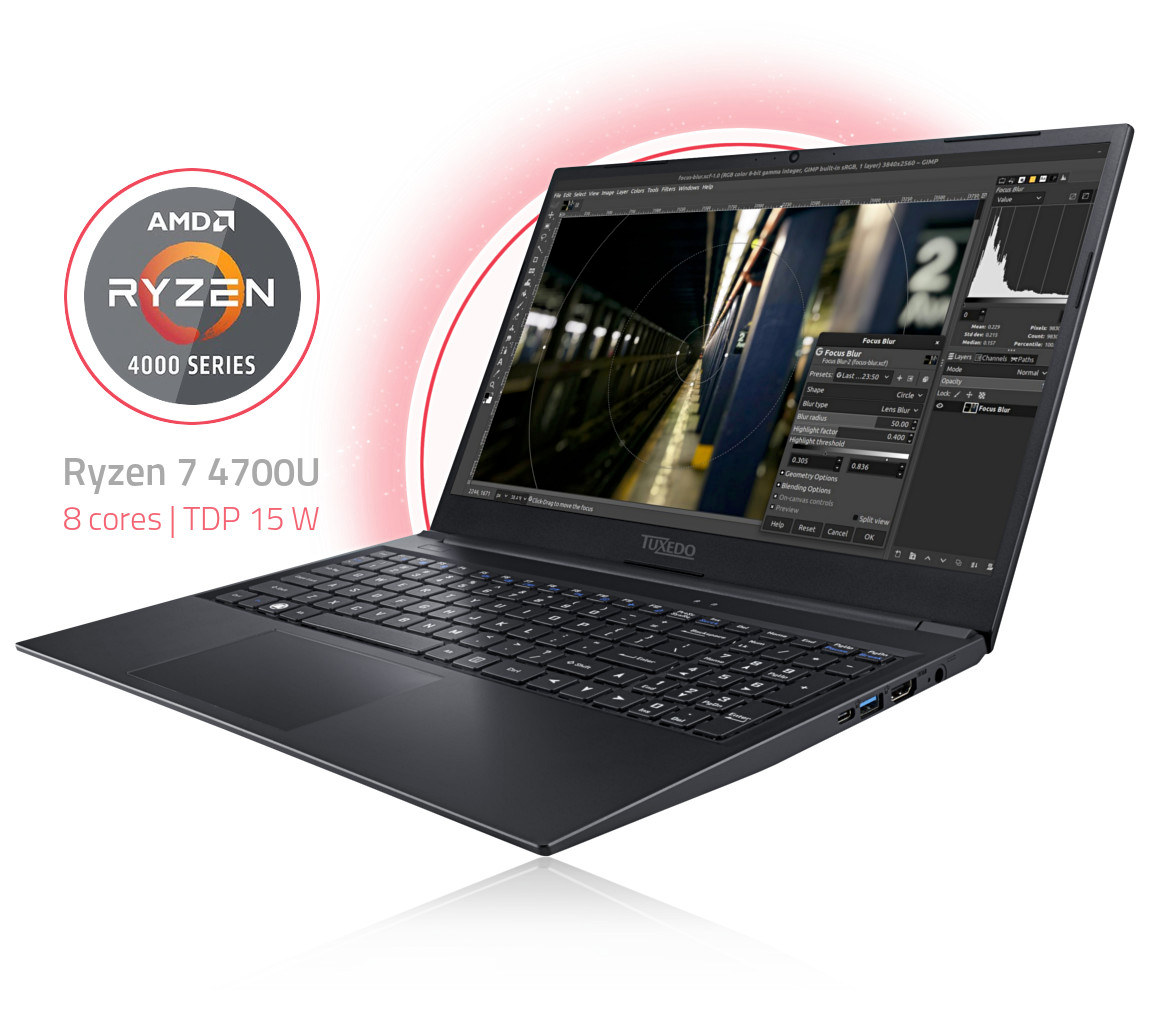Andes’ Voyager Development Platform is a micro-ATX motherboard based on the company’s QiLai SoC with four AX45MP 64-bit RISC-V cores and an NX27V vector processor optimized for AI workloads. The Voyager board supports up to 16GB of DDR4 via a UDIMM socket, features 16Mbit SPI Flash for boot code and an SD card socket, includes three PCIe Gen4 slots to connect external devices such as GPU card and SSD, as well as a JTAG debugger and USB to UART bridge for debugging during Linux software development. Andes QiLai RISC-V AI SoC Before looking at the board itself, let’s check the Andes QiLai SoC specifications: CPU cores Andes AX45MP-4C cluster 4x RV64GC 8-stage superscalar processors clocked at 1.6 GHz (worse) / 2.1 GHz (typ.) Support of MESI cache coherence protocol with Coherence Manager 32KB L1 Instruction and Date cache 2MB L2 cache I/O Coherence Port (IOCP) – Synchronous AXI4 (256 bits […]
ASUS N97T-IM-A – A thin mini-ITX motherboard powered by an Intel Processor N97 Alder Lake-N CPU
The ASUS N97T-IM-A is a thin Mini-ITX motherboard for industrial and embedded use, featuring the Intel N97 Alder Lake-N processor (4 cores, 2.0–3.6 GHz) with up to 16GB of DDR5 memory at 4800 MHz, and two gigabit Ethernet ports using Realtek RTL8111H controllers. The board also includes two SATA III 6Gbps ports, a PCIe 3.0/2.0 x1 slot, and dual M.2 slots for NVMe and Wi-Fi/Bluetooth. It supports HDMI 2.0, DP++, and LVDS video outputs, with optional eDP, and can handle resolutions up to 4K at 60 Hz. Built for durability, the N97T-IM-A is designed for demanding environments with a seven-year product lifecycle. In one of our last posts, we wrote about the Jetway JNUC-ADN1, another Intel N97-powered SBC, but in a smaller Next Unit of Computing (NUC) form factor and the Jetway JMTX-ADN8 another N97 mini-ITX motherboard. Other than that we have also written about similar motherboards in the mini-ITX form factor including […]
Libre Computer AML-A311D-CC “Alta” SBC features Amlogic A311D AI processor
Libre Computer has launched the credit card-sized “Alta” SBC, also known as AML-A311D-CC, designed for AI applications with the Amlogic A311D hexa-core Arm Cortex-A73/A53 processor equipped with a 5 TOPS AI accelerator. The board comes with 4GB LPDDR4, a 16MB SPI flash for the bootloader as well as a microSD card slot and eMMC flash module connector for storage, and offers many of the same ports as found on the Raspberry Pi 3 Model B+ with Gigabit Ethernet, four USB 3.0 ports, HDMI output, an AV jack, MIPI CSI and DSI connector, and a 40-pin GPIO header that should work with most Raspberry Pi HATs. AML-A311D-CC “Alta” specifications: SoC – Amlogic A311D CPU Hexa-core processor with 4x Arm Cortex-A73 cores @ up to 2.2 GHz and 2x Cortex A53 cores @ up to 1.8 GHz Built-in Cortex-M4 core for “always-on” processing GPU – Arm Mali-G52 MP4 GPU VPU 4K UHD […]
Raspberry Pi CM4 compatible RISC-V SoM features StarFive JH7110 SoC
We’ve seen many Arm-based system-on-modules following the Raspberry Pi CM4 form factor, but we’ve now got a RISC-V one courtesy of the Milk-V Mars CM CPU module powered by a StarFive JH7110 quad-core RISC-V SoC. The RISC-V module comes with up to 8GB RAM, a 16MB SPI flash, an optional eMMC flash, onboard GbE PHY, and a wireless module with WiFi 5 and Bluetooth 5.2 plus the two 100-pin board-to-board connectors offering (partial) compatibility with carrier boards made for the Raspberry Pi Compute Module 4. Specifications: SoC – StarFive JH7110 CPU – Quad-core RISC-V processor (RV64GC) at up to 1.5GHz GPU – Imagination BXE-4-32 GPU with support for OpenCL 1.2, OpenGL ES 3.2, Vulkan 1.2 VPU H.264 & H.265 4Kp60 decoding H.265 1080p30 encoding JPEG encoder / decoder System Memory – 2GB, 4GB, or 8GB LPDDR4 Storage SDIO 2.0 (options to eMMC) 16MB NOR flash Networking Gigabit Ethernet PHY (YT8513C) […]
Raspberry Pi 4, Rockchip RK3399 SBC’s get Arm SystemReady IR certification
The first hardware platforms getting Arm SystemReady IR certification for IoT Edge applications were announced a few months ago with namely NXP i.MX 8 Mini evaluation kit and Compulab IOT-GATE-IMX8 gateway being able to run off-the-shelf operating system images such as Fedora IoT, OpenSuSE Leap 15.3, and Debian 11 thanks to UEFI firmware. But following PinePhone Pro Linux smartphone announcement, and Pine64 October update, we also learned that Rockchip RK3399 based RockPro64 was also Arm SystemReady IR certified, and check Arm’s website directly revealed it was joined by Lenovo Leez P710 “Gateway” SBC, as well as Raspberry Pi 4 and Pi 400 platforms. Let’s check the details and see what off-the-shelf images each board has been tested with. Pine64 RockPro64 RK3399 SBC achieved SystemReady IR v1.0 Level 1 certification meaning it complies with some waivers and workarounds found in the errata document. The board has been successfully tested with Fedora […]
The first Arm SystemReady IR certified platforms – NXP i.MX 8M Mini EVK & Compulab IOT-GATE-IMX8 gateway
A few months ago, we noted SolidRun HoneyComb LX2K became a certified Arm SystemReady ES platform. SystemReady is a certification program by Arm that ensures systems just work with generic operating systems like in the x86 world. When we looked at the details of the program in the article, we noted there were different categories including SystemReady ES for embedded servers and SystemReady IR for IoT Edge applications. The first SystemReady IR platform – NXP i.MX 8 Mini evaluation kit Arm has just announced the first SystemReady IR platform had just been certified. That device is the NXP i.MX 8M Mini EVK, and that means that anyone that uses the i.MX 8M family of devices with the associated Board Support Package (BSP) can build platforms that will pass the same certification process and boot compliant Linux distributions with minimal integration effort. We can see more details about the certifications on Arm developer’s website. NXP i.MX 8M Mini EVK achieved certification with NXP 2021 Q2 pre-release firmware, version LF […]
SolidRun HoneyComb LX2K becomes a certified Arm SystemReady ES platform
SolidRun HoneyComb LX2K is part of our list of the 5 most powerful Arm SBC’s in 2021. The mini-ITX board features an NXP LX2160A 16-core Arm Cortex-A72 processor, supports up to 64GB RAM, offers high-speed networking thanks to up to 4x SFP+ 10GbE cages and a Gigabit Ethernet port, as well as four SATA ports, a PCIe x8 slot, M.2 SSD slot and more. The board is ideal for networking applications and can be also be integrated into an Arm workstation for native application development. But just last month, we noted that while SolidRun talked about SBSA compliance a while ago, the status was unclear. The good news is that HoneyComb LX2K has just now become a certified Arm SystemReady ES (Embedded Server) compliant platform. Arm SystemReady is a set of standards and a compliance certification program that ensures systems just work with generic, off-the-shelf operating systems straight out of […]
TUXEDO Aura 15 Linux Laptop is Powered by AMD Ryzen 7 4700U Processor
There are few Linux laptops on the market and usually higher-end ones, so some people may decide to buy a Windows or FreeDOS laptop and install Ubuntu or another Linux distribution themselves. In theory, this is supposed to work, but when installed Ubuntu 18.04 on an Acer Ryzen 7 laptop a couple of years ago, it took me several hours of work to get this working despite it being pre-loaded with Linpus Linux operating system. So more choice is always welcome, and TUXEDO Computers has now added a mid-range Linux laptop to their offerings with TUXEDO Aura 15 powered by a 15W AMD Ryzen 7 4700U octa-core processor and shipping with Ubuntu 20.04, openSUSE 15.2, or TUXEDO_OS 20.04 based on Ubuntu plus Budgie Desktop. TUXEDO Aura 15 specifications: SoC – AMD Ryzen 7 4700U octa-core processor @ 2.0 to 4.1 GHz (Turbo) with 8 MB L3-Cache, AMD Radeon RX Vega […]


